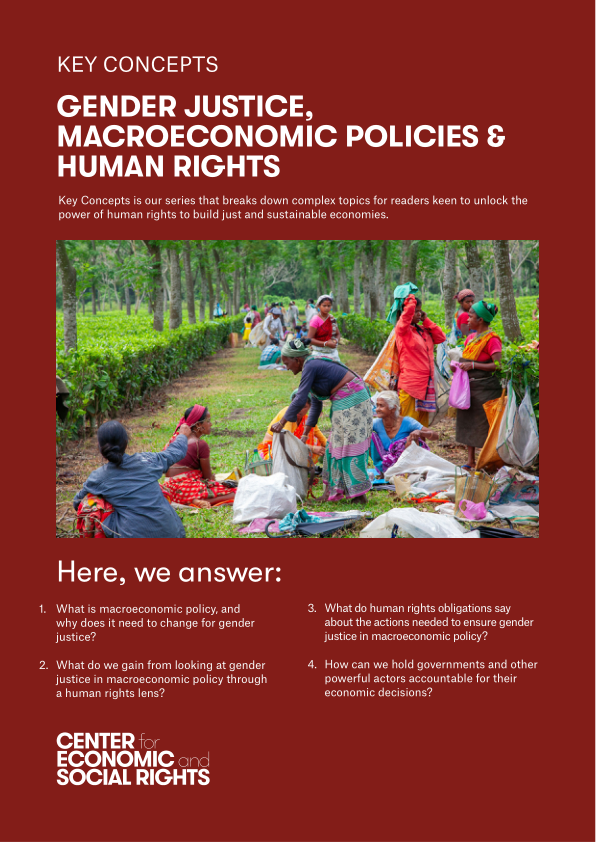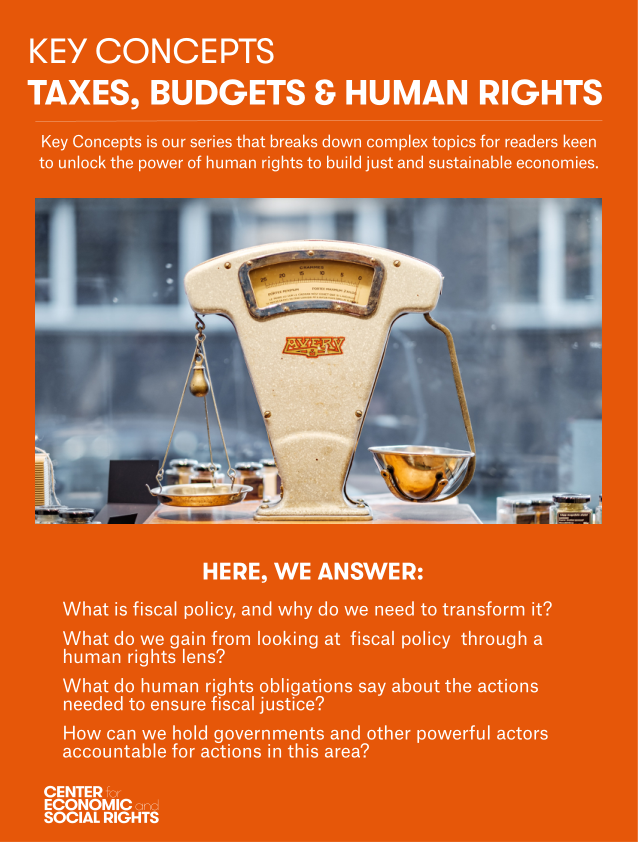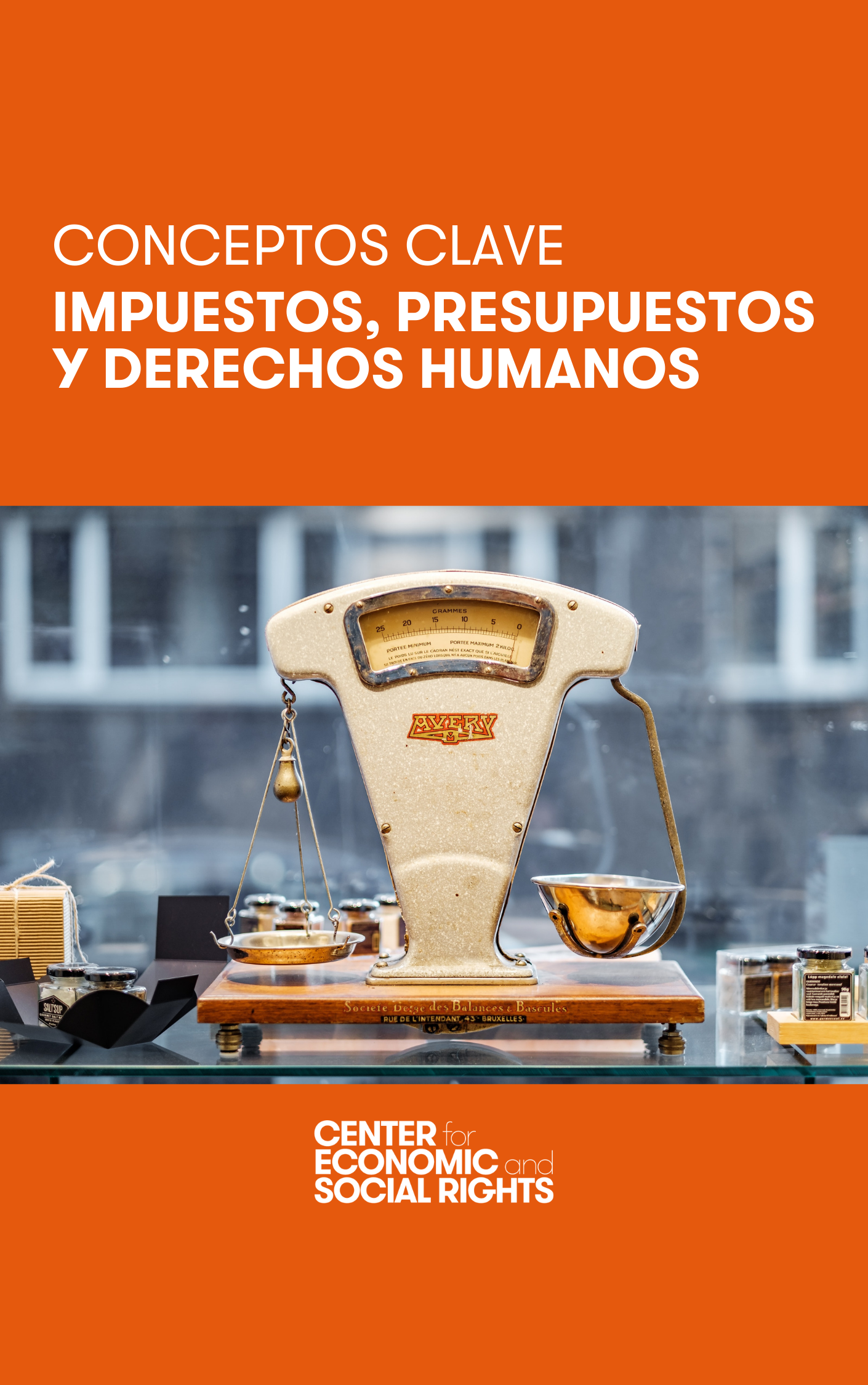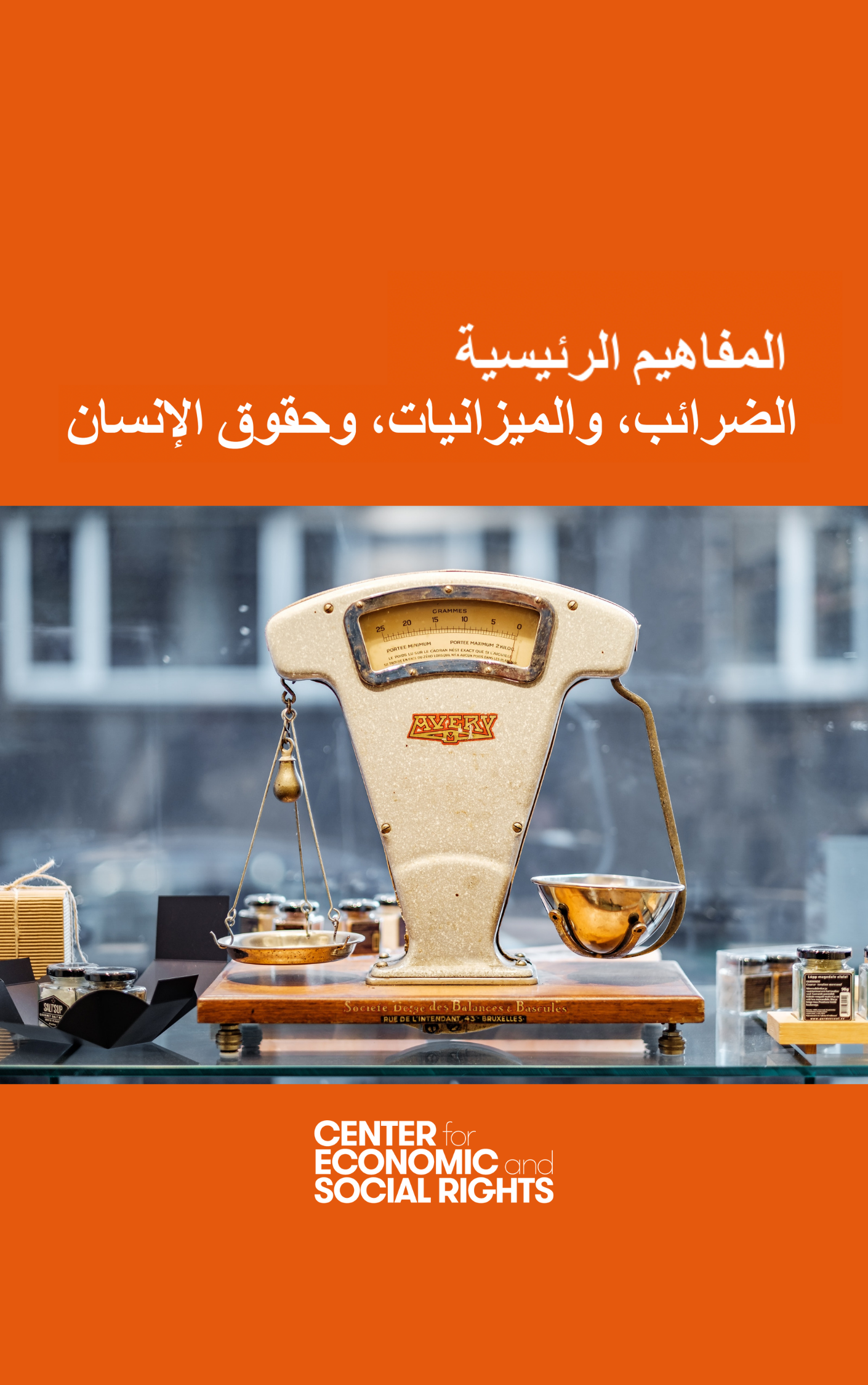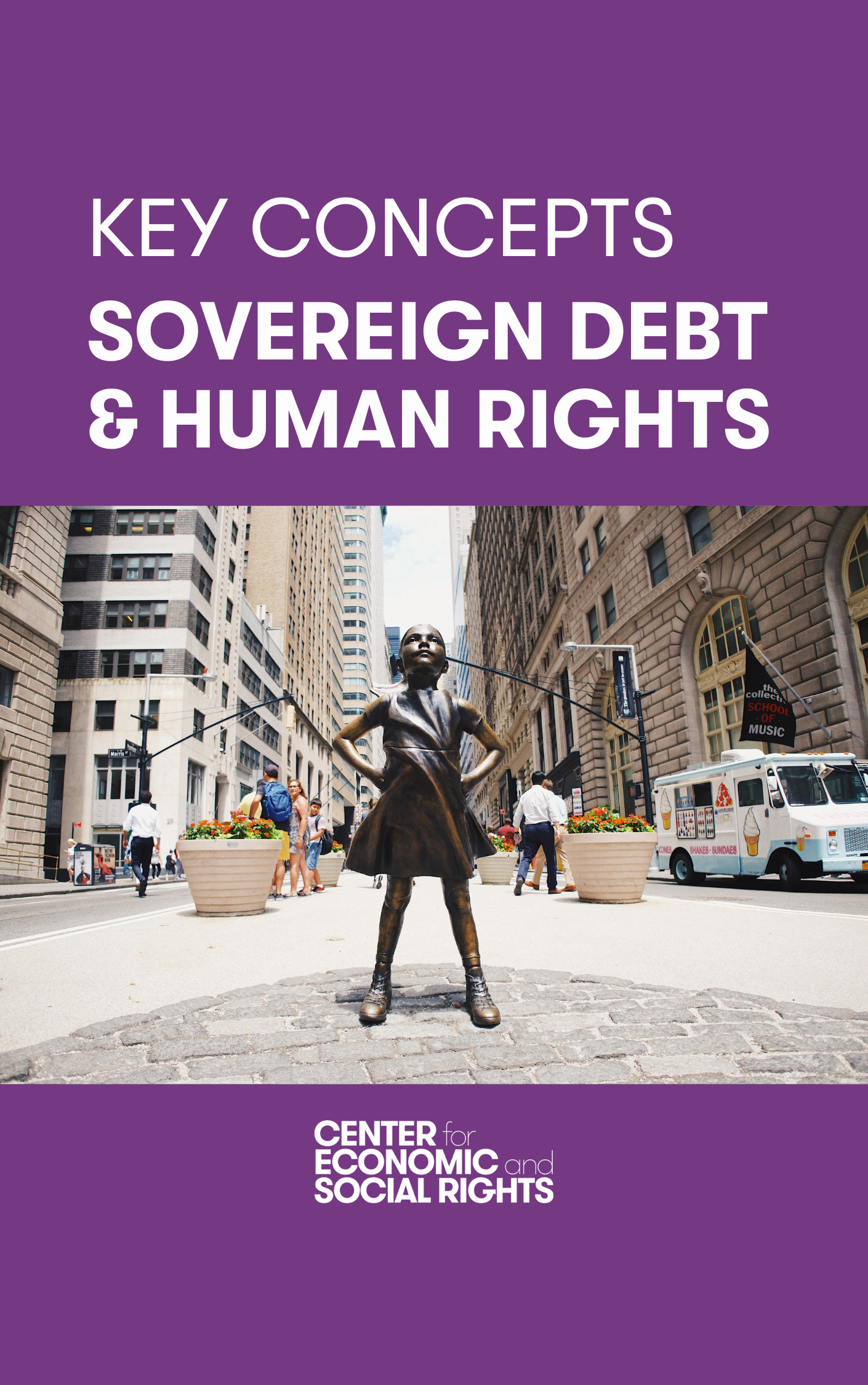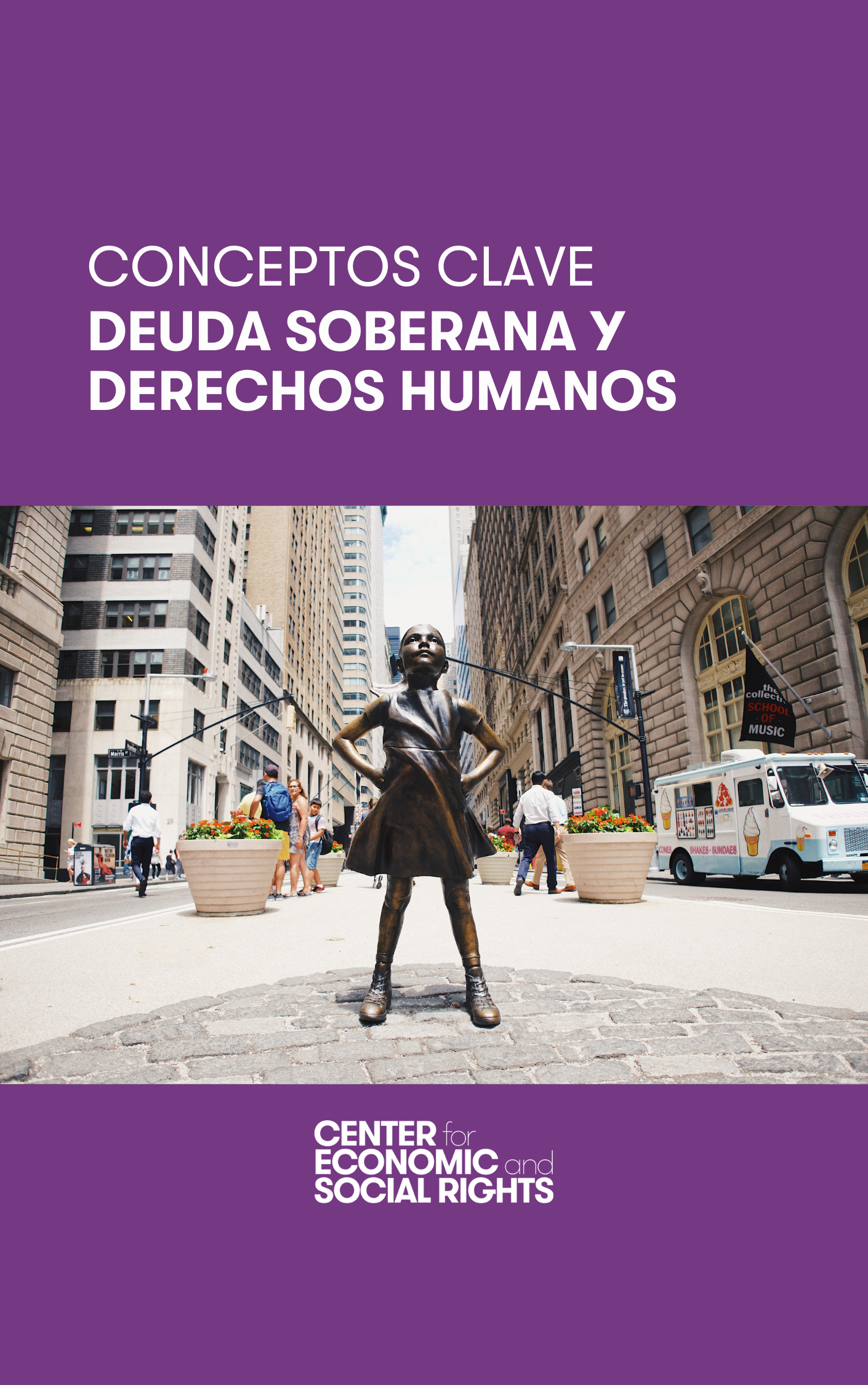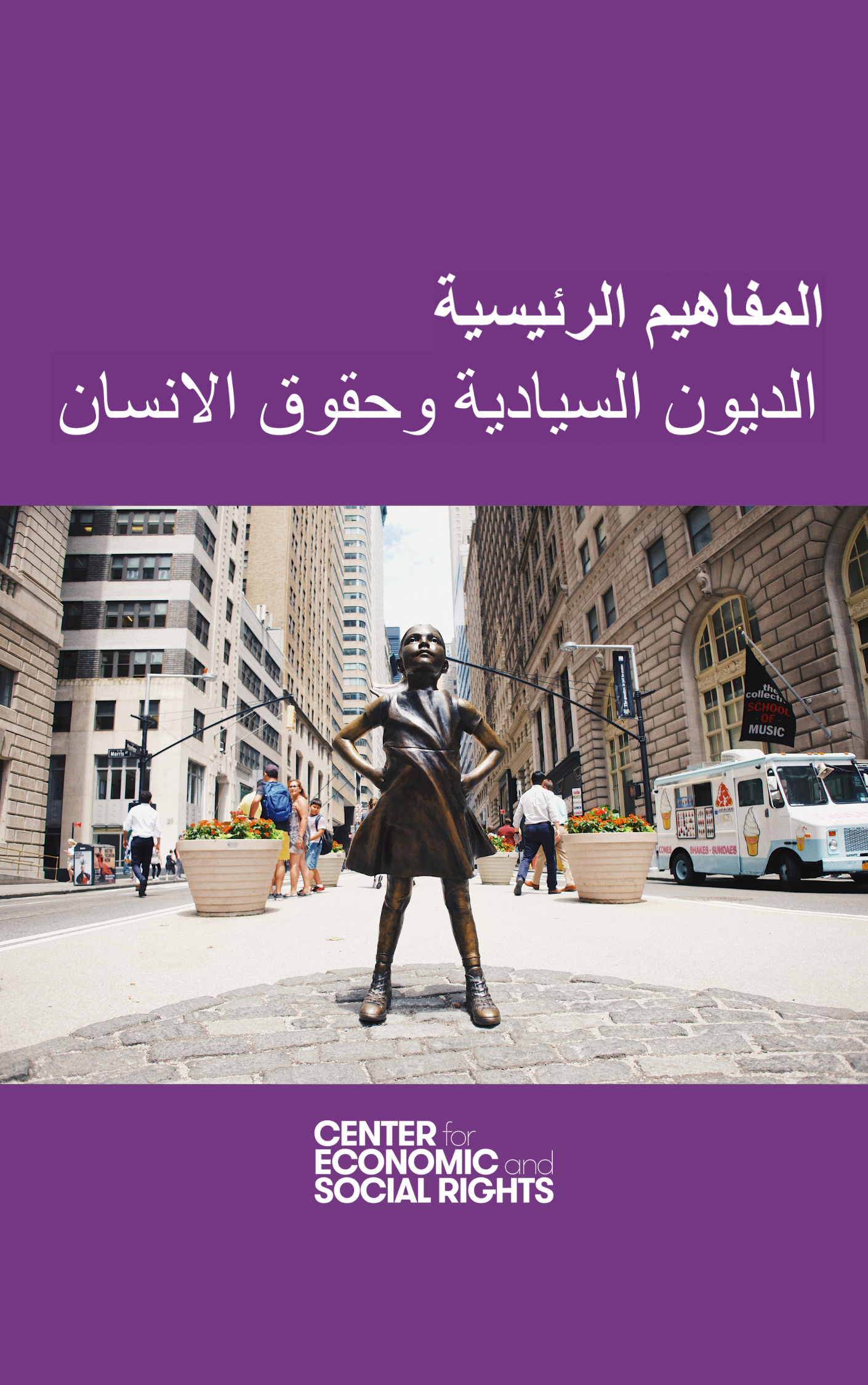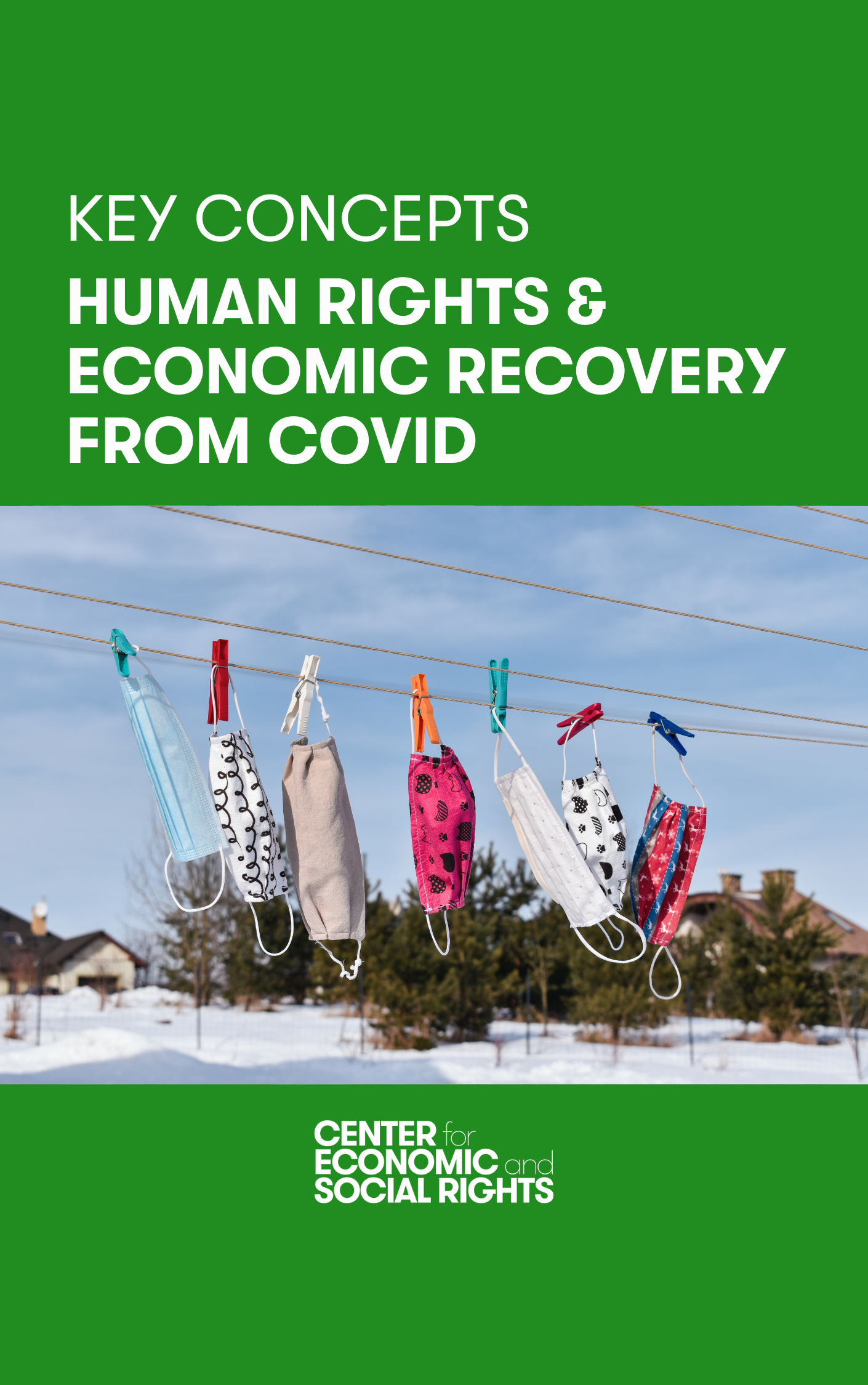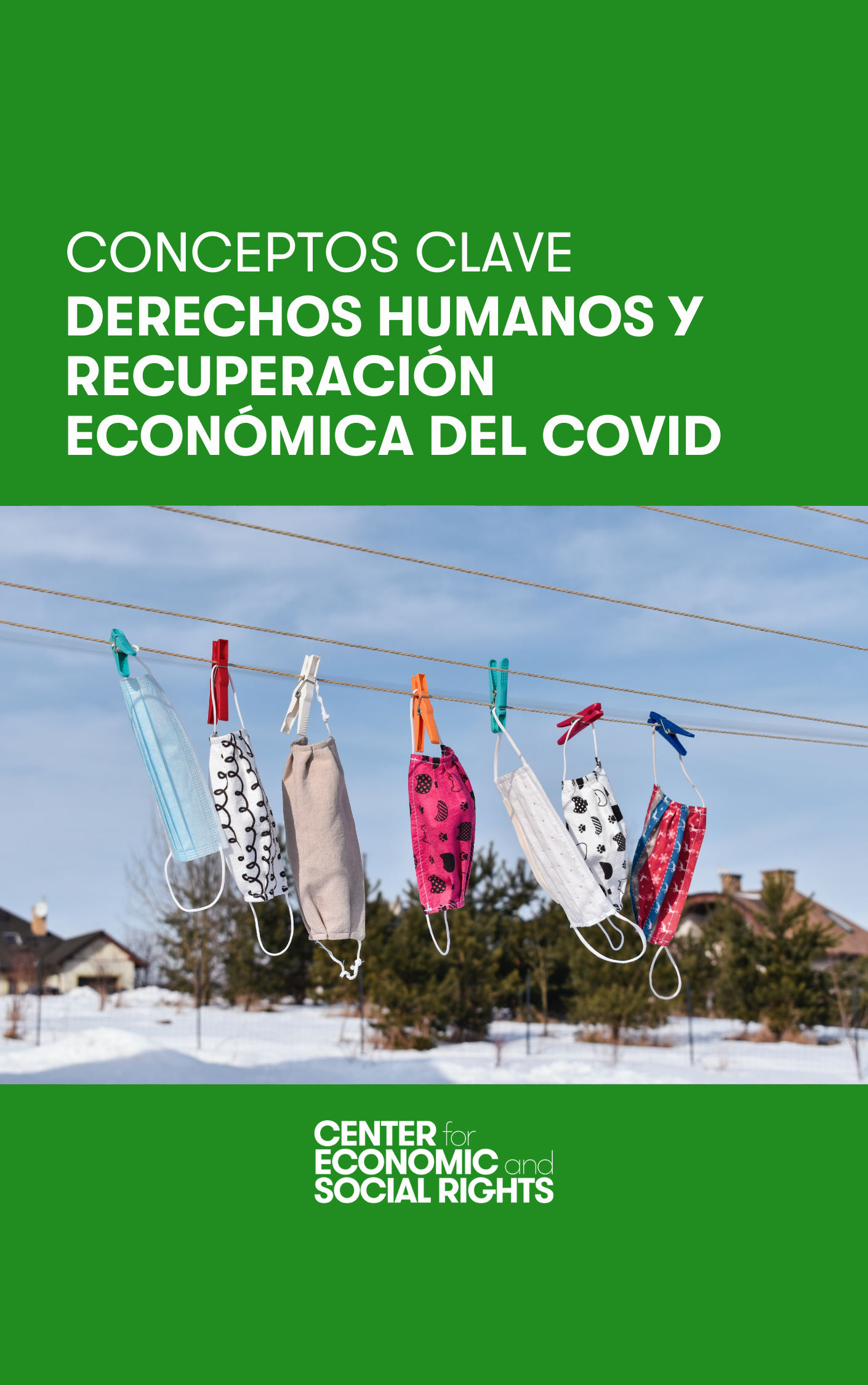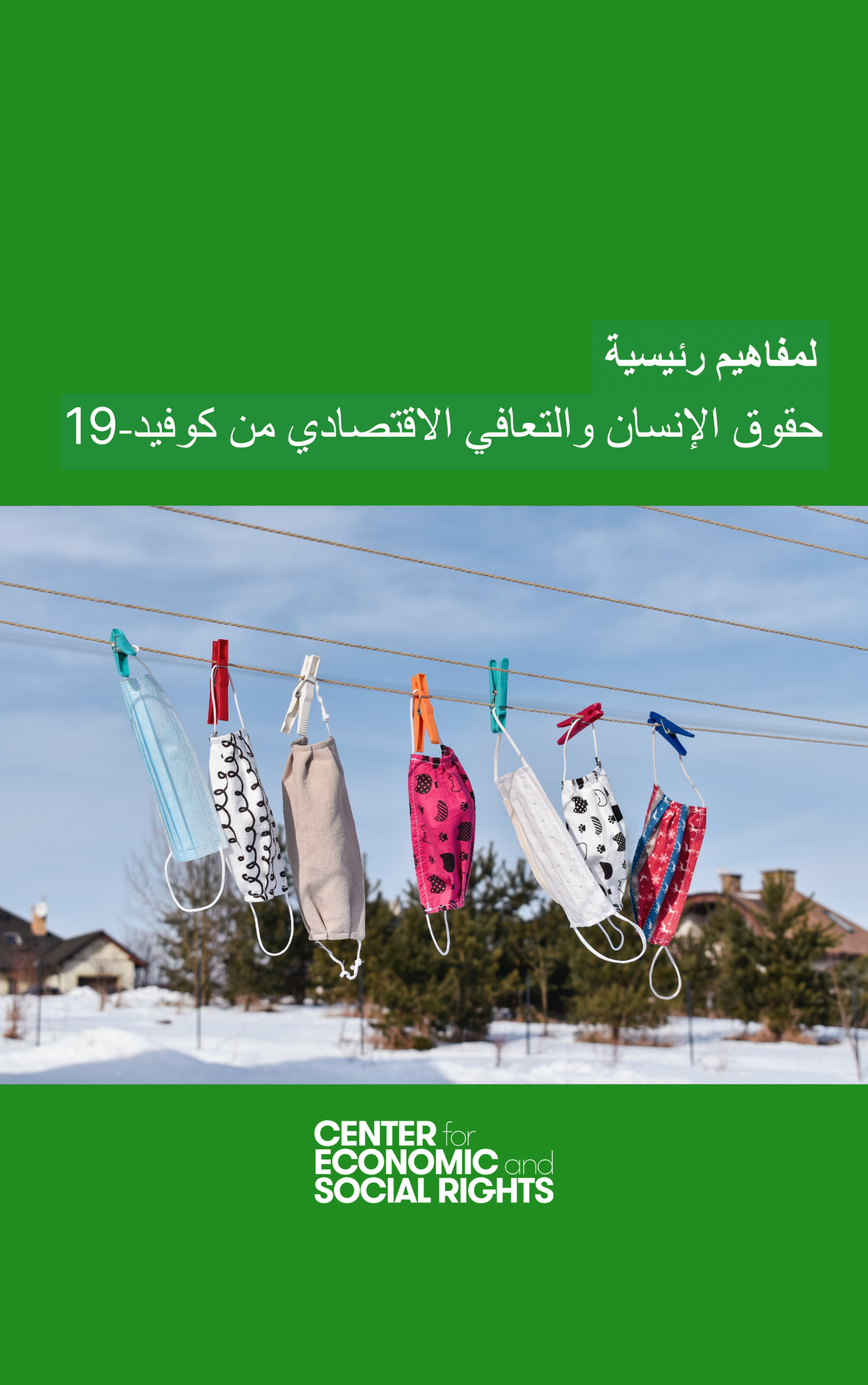The Key Concepts series equips activists, community leaders, and organizations with clear, accessible tools to push for economic transformations rooted in human rights. Each primer breaks down a complex issue and shows how rights can guide policy choices that put people and planet first.
Our newest primer, on Gender Justice, Macroeconomic Policies, and Human Rights, shows how decisions on budgets, taxes, and monetary policy shape unequal power in people’s lives. It offers rights-based alternatives that invest in care, strengthen public services, and advance the dignity and rights of women and gender-diverse people.
The first primer in the series, Human Rights & Economic Recovery from COVID (also available in Spanish and Arabic), shines a light on the structural injustices exposed by the pandemic. It outlines how a human rights perspective can reshape recovery efforts and hold governments and private actors accountable, ensuring a just and sustainable recovery.
Our second primer, Sovereign Debt and Human Rights (also available in Spanish and Arabic), examines the unjust power dynamics behind countries’ public debt and offers a human rights framework to challenge traditional approaches. It explores how government borrowing, if done right, can strengthen public services and bolster economic resilience.
The third primer, on Taxes, Budgets, and Human Rights (also available in Spanish and Arabic), addresses how governments collect and allocate public resources. It equips advocates with arguments to challenge austerity and propose fiscal transformations that combat inequality and ensure shared prosperity, using human rights standards as guiding principles.
The fourth primer, on Reparations-Based Climate Finance, delves into how we can resource responses to the climate crisis using equitable, justice-driven approaches grounded in human rights. It explores pathways for climate finance that prioritize those most impacted, highlighting how reparations-based solutions can heal the planet and uphold the dignity and rights of all. Spanish and Arabic versions coming soon.
Across all five primers, you’ll find crucial human rights concepts paired with practical examples of their application in advocacy and policymaking. Whether you are an activist, part of an organization, or simply interested in economic and social justice, this series will help you explore issues such as pandemic recovery, sovereign debt, fiscal justice, and reparations-based climate finance.
Want to be the first to hear about upcoming issues? Join the mailing list here.
.png)
